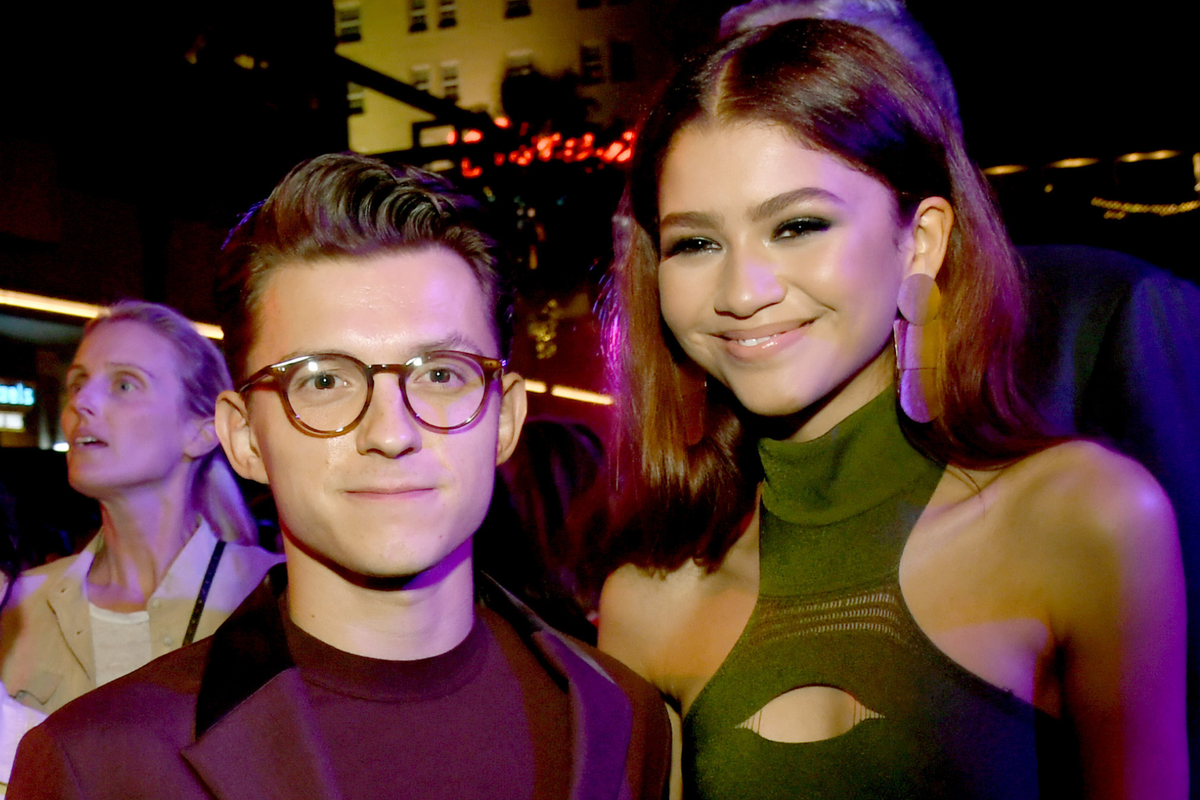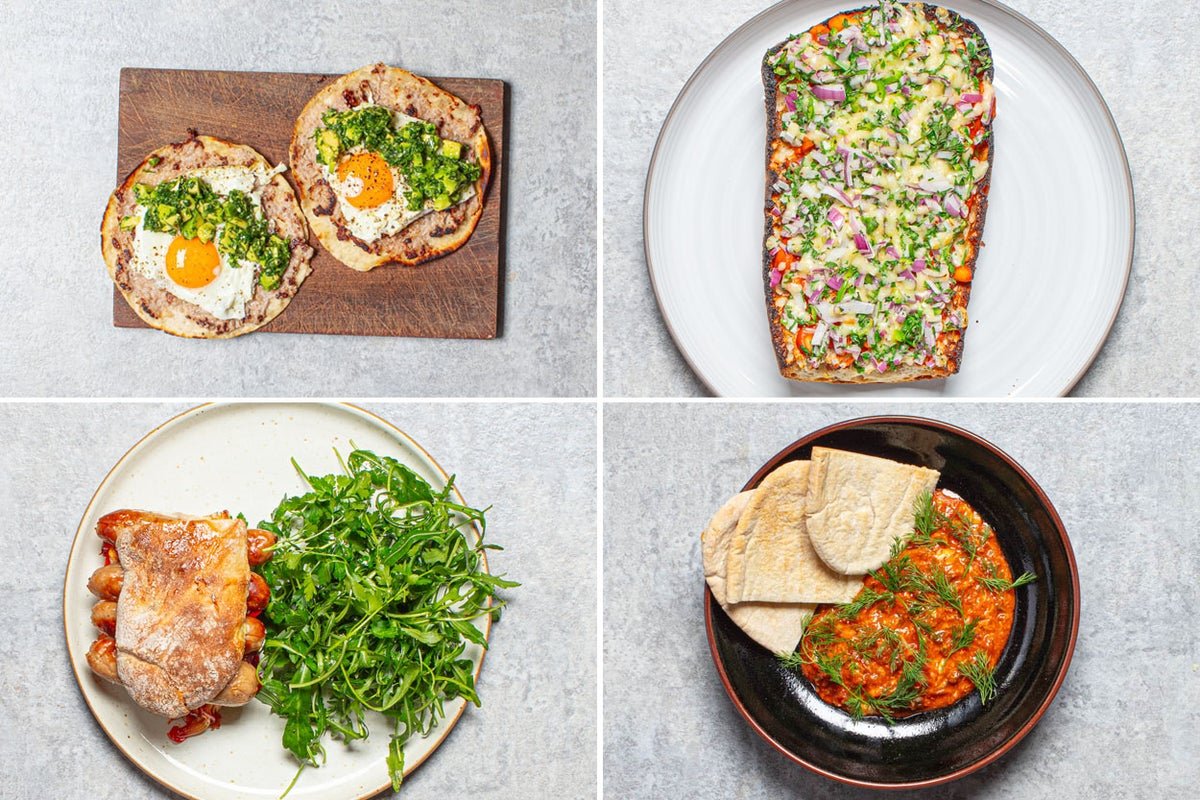I’m a feminist, but as women we don’t always help our cause – especially when it comes to the realm of romance and relationships. The number of us who still expect a man to pay on a first date, for example – 46 per cent according to one 2019 survey – hurts my heart. Women I love and respect still refer to various household chores as “blue jobs”, because taking the bins out apparently requires a Y chromosome. But worst of all is arguably our blatant and abhorrent heightism, so abiding that it has essentially radicalised me at this point.
It’s always been problematic below the surface. Now, Tinder’s trialling of a new feature that enables (paying) users to filter prospective matches based on how tall they are has brought the issue kicking and screaming back into the light.
Tom Stroud, he of Love Is Blind: UK fame and now host of the podcast Why Do Men…?, which explores male behaviour in dating and relationships, discovered this prejudice first hand when he shared a video on Instagram encouraging women not to discriminate against potential partners based on feet and inches. It was, he said, one of his more unexpectedly polarising posts: “I was pretty confident that the message that I put out there was one which most people would abide, but it was completely split down the middle,” he says. “I saw a lot of women in particular saying, ‘Look, I’m 5ft 10in, this doesn’t apply to me. I want to go out with a guy taller than me.’”
After the life-affirming Short King Spring of 2022, I genuinely thought we’d reached a place where women weren’t going to be quite so shallow about height anymore, learning instead to value a man’s character over and above whether he had to pay for extra legroom on a longhaul flight. The social media trend saw male celebrities under 5ft 9in being hailed as the hottest new accessory as they proudly accompanied their more statuesque partners (think 5ft 8in Tom Holland with 5ft 10in Zendaya, 5ft 7in Joe Jonas with 5ft 9in ex-wife Sophie Turner, and 5ft 10in Keith Urban with 5ft 11in Nicole Kidman).
Yet this golden era was short-lived (pardon the pun) – by 2024 we had regressed even further with, for example, the “man in finance, 6’5”, blue eyes” ideal that spawned a thousand memes, first popularised via a viral TikTok.
But why are we so hung up on height? And why does it matter who’s taller in a relationship – especially in the modern world, when traditional gender roles are largely becoming a thing of the past?
Women are by far the worst culprits when it comes to this particular predilection. Research has consistently shown that women find taller men more attractive, while one study of 2,000 online dating profiles published in the research journal Personality and Individual Differences found that only 4 per cent of women, compared to 23 per cent of men, were open to a relationship where the woman was taller.

To unpack this deep-rooted prejudice, we have to go right back to our evolutionary biology, according to experts.
“Women’s preferences for taller height arise from a complex combination of social and biological factors,” says David A Frederick, co-author of the study “Height and Body Mass on the Mating Market” and associate professor of health psychology at Chapman University. “From an evolutionary perspective, taller height was a cue to access to resources. People who have more access to food during development tend to grow notably taller.” Height is also associated with perceived dominance, he adds – larger males are often preferred because they’re seen as more formidable for warding off threats from other men.
It goes back to the old hunter/protector role that men traditionally occupied, agrees Dr Farid Pazhoohi, a lecturer in psychology and the director of the Social Cognition Lab at Plymouth University. Times may have changed, but environment will still play a fascinating role in what women find attractive. Factors such as resource scarcity, income inequality and exposure to violence can shift women’s preferences toward traits associated with genetic quality or protection; for instance, previous research has found that “women show stronger preferences for masculine facial features in harsh or unequal environments”, he says.
Although much of modern society is set up completely differently – and the best male “protector” might in fact be a 5ft 5in accountant with a steady income who calls his mum every week – our preferences in mate selection could be deeply hard-wired. Pazhoohi adds: “Much of our behaviour continues to be shaped by evolved, adaptive preferences that influence our decision-making across various domains, not just mate selection.”
Of course, it’s not to say that women are the only ones with in-built aesthetic prejudices. There’s age, for one – research has suggested that, while men forever remain attracted to women in their twenties (aka, the cohort most likely to be fertile), women tend to be more physically attracted to men their own age and older. And then there’s physique; that “slim but curvy” gold standard epitomised by the Kardashians and guaranteed to torture the rest of us? It’s just as grounded in evolutionary biology as heightism.
Why is it socially acceptable for women to be just as judgemental based on equally surface-level criteria?
“A low waist-to-hip ratio (a thin waist but wider hips – a curvaceous body) demonstrates fertility with optimal fat distribution, and has been shown to be highly attractive to men,” as one 2024 research paper on the evolutionary science behind physical attraction explains. When men choose who to date based solely on looks, though, they’re quite rightly branded as superficial, despite the logical biological imperatives that could drive such behaviour. So why is it socially acceptable for women to be just as judgemental based on equally surface-level criteria?
In part, it may be because these evolved preferences have “become dramatically magnified through cultural messages, including media portraying male-taller relationships as ideal,” says Frederick. On the flip side of the same tarnished coin lies a media landscape that has long advertised small women as desirable. There has been endless discourse around the pressure for the fairer sex to shrink themselves down through dieting, to take up as little space in the world as possible – and being with a man who’s taller can naturally make us feel smaller by comparison.
“I think some of this preference definitely stems from us being taught that we feel more feminine and ‘dainty’ when we’re smaller than the man,” says dating coach Hayley Quinn, who offers real-world training through her dating bootcamps and masterclasses. “It’s really interesting to recognise that perhaps we don’t need to be little comparatively to a man to feel sexy or feminine.” Challenging our assumptions that it’s “reasonable” for a woman to demand a future romantic partner is taller than her isn’t, then, as simple as it sounds – it means unpacking some of our deepest held notions around masculinity, femininity and gender roles, a hangover from hundreds of years of patriarchal rule.
Yet it’s perhaps more important than ever that we start to interrogate these views and question why we’re conforming to an outdated ideal that leaves many men feeling inadequate. Stroud, who runs a men’s group comprised of 200 guys, says a frequent topic that comes up is societal expectations around masculinity versus the reality of masculinity in the modern world.

“What I hear a lot from women is that tall men make them feel protected,” he says. “And the question I always give those women is: why does that make you feel protected? Is it not better to date someone who has strength in a slightly different way? Maybe you should be looking for a man who has strength because he makes you feel emotionally protected, or is able to listen and hear you, or make you feel brilliant as a person.”
The rise in incel culture and the manosphere has also given rise to toxic narratives around heterosexual dating and women. One of these, the 80/20 rule, was explored in recent Netflix hit Adolescence; it denotes the crank belief, circulated online and peddled by misogynistic content creators, that 80 per cent of women are only attracted to the top 20 per cent of men. “Women, you must trick them because you’ll never get them in a normal way,” as one teenage character puts it in the show.
It’s an ideology that further fuels hatred and resentment towards women, perpetuating a myth that men aren’t having sex or relationships because women simply won’t give them a chance. And, while clearly nonsense, it’s perhaps understandable that such a notion would gain traction when romantic prejudice against any man who’s deemed an inch too short is still framed as justifiable. Especially amid an app culture that sees women who’ve used online dating platforms more likely to feel overwhelmed by the number of messages they receive, according to research, while men are more likely to feel insecure about a lack of messages.
But the main benefit of shifting our mindset and manually overriding ingrained proclivities is that we could expand our chances of finding love. The average male height in the UK is 5ft 10in; only an estimated 14.5 per cent of men in the US are 6ft or above. It therefore stands to reason that making an arbitrary minimum height a non-negotiable on a dating app “puts you at a massive disadvantage”, says Quinn. “He could be kind, fun, sexy, totally emotionally available – and you’ll never get the opportunity to meet him because you put a filter on. Keep your funnel really open at the superficial level, and then be tough in terms of how people treat you and whether you align in the kind of relationship that you want.”
Stroud agrees that, while it’s good to be discerning, what we discern is crucial. “I want to preach around things like values and goals,” he says. “Does that person share the same ambition that you do to build a certain type of life, or do they have more family-focused values?” He theorises that dating apps in general make us more shallow because they enable us to immediately eradicate matches based on physical factors. “People talk about being picky like it’s a badge of honour, and I don’t think it should be,” he says. “The best relationships I’ve seen are where people have compromised a little bit because their intent is to meet someone that they want to spend the rest of their life with, rather than this perfect person.”
People talk about being picky like it’s a badge of honour, and I don’t think it should be
Tom Stroud of ‘Love Is Blind: UK’
Ironically, being more picky makes it more likely we’ll be dissatisfied with whatever (or whoever) we choose. In his 2021 book The Paradox of Choice, Barry Schwartz explored the concept of “maximisers” and “satisficers”: the former always want to optimise to ensure they make the “best” choice but are often left with decision regret; the latter would rather make a decision quickly, adopting a “good enough” approach, and tend to be happier with the end result.
And let’s be real: filtering by height doesn’t even guarantee you’ll end up on a date with a tall man. According to a 2023 survey conducted by GQ, 70 per cent of men have lied about themselves on dating apps, including 27 per cent who admit to having fibbed about their height. Clearly, if getting a date requires gaming the system, plenty of people are prepared to massage the truth. In which case, why not just ditch the filtering altogether?
“You can’t treat looking at a dating app profile, or even a first meeting with someone, like a final job interview,” as Quinn puts it. “If you can keep your options broader and more open, and you can challenge your type, you’re going to feel more abundance. You’re going to feel more confident that you can meet someone. And, actually, you’re going to stand a better chance of forming a great relationship.”
Have standards, by all means – but have them about the right things at the right stage. At the end of the day, as the old joke goes: we’re all the same height lying down.
#Women #wont #date #men #based #height #deserve #single



